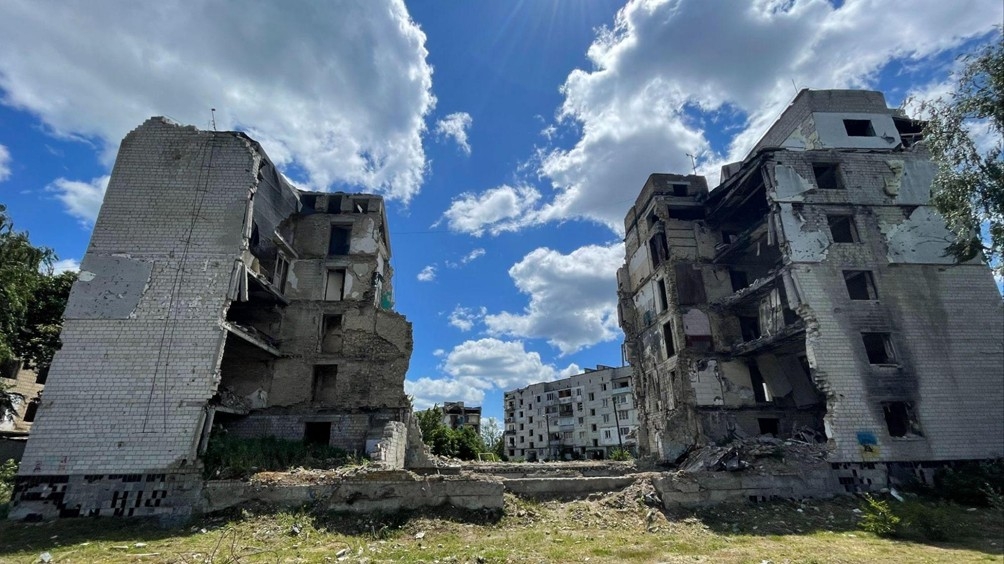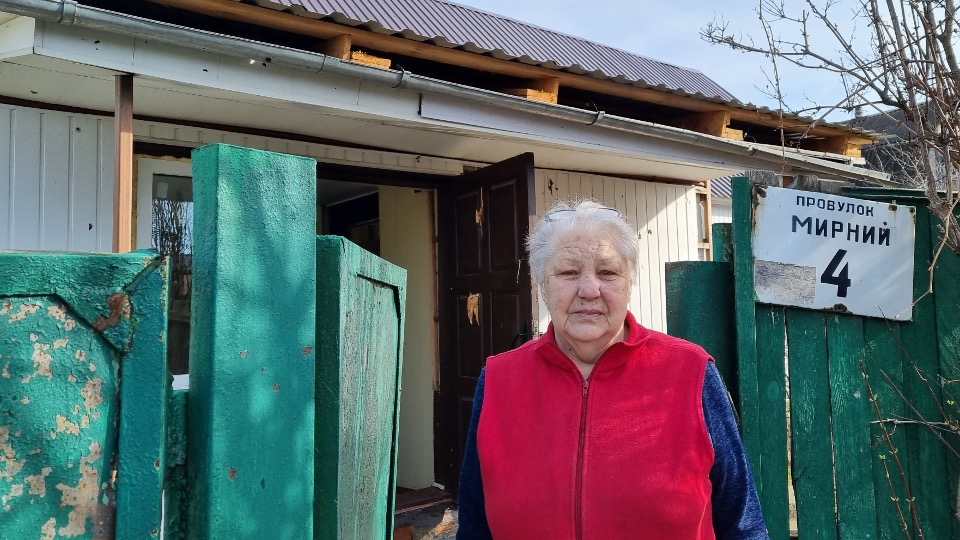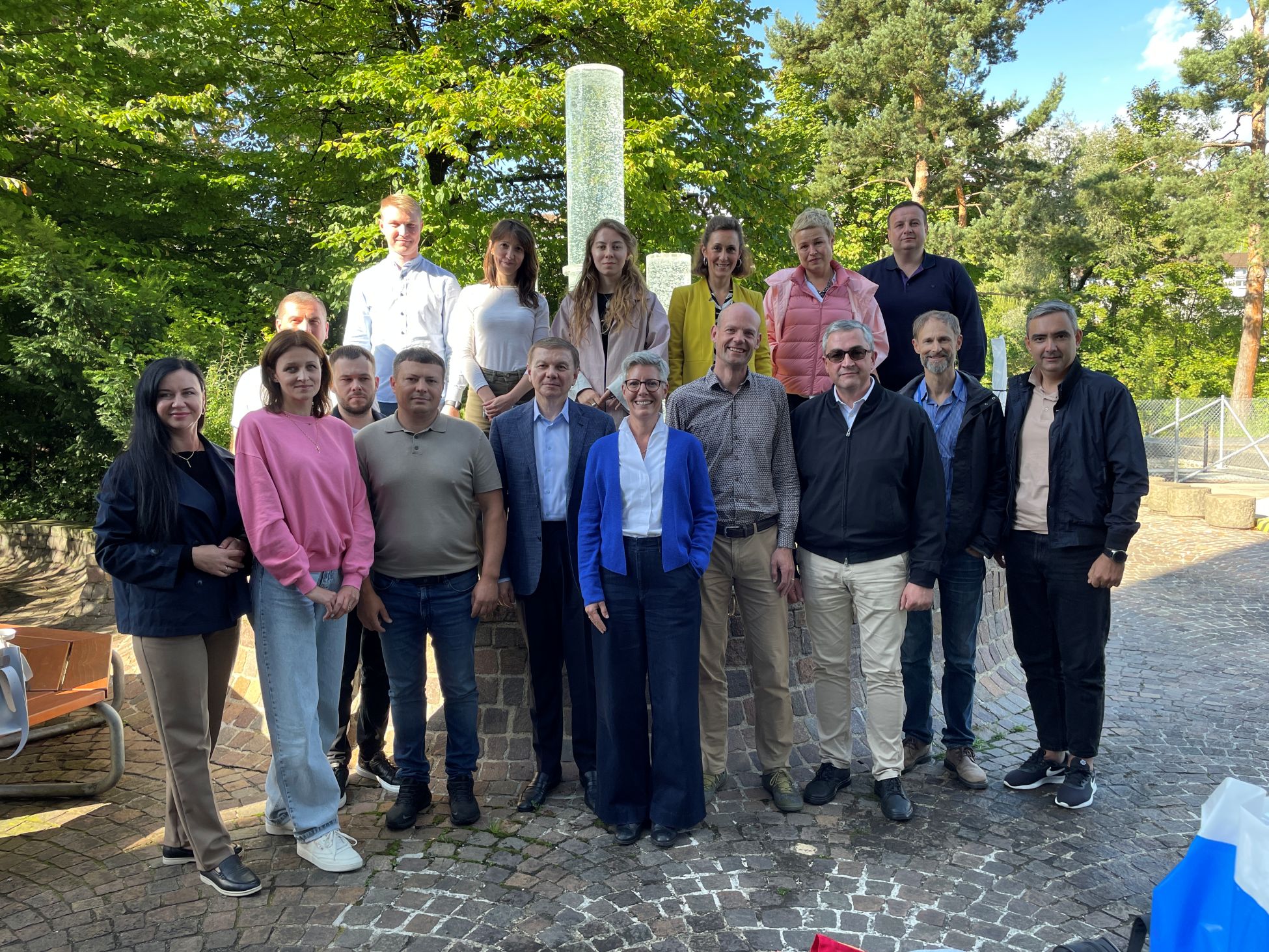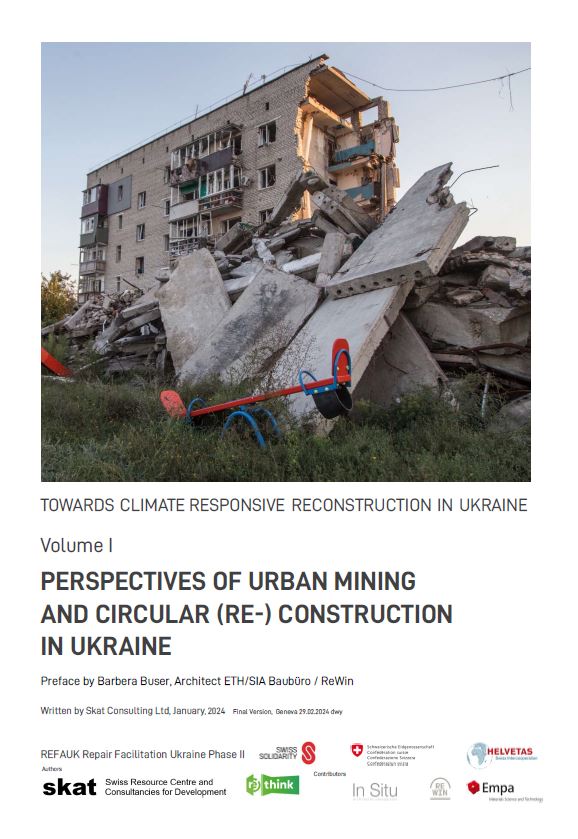SKAT supports reconstruction in Ukraine by drawing on existing networks
SKAT aims to contribute to Ukraine’s reconstruction by drawing on its extensive regional experience and innovative, context-specific approaches to rebuilding.
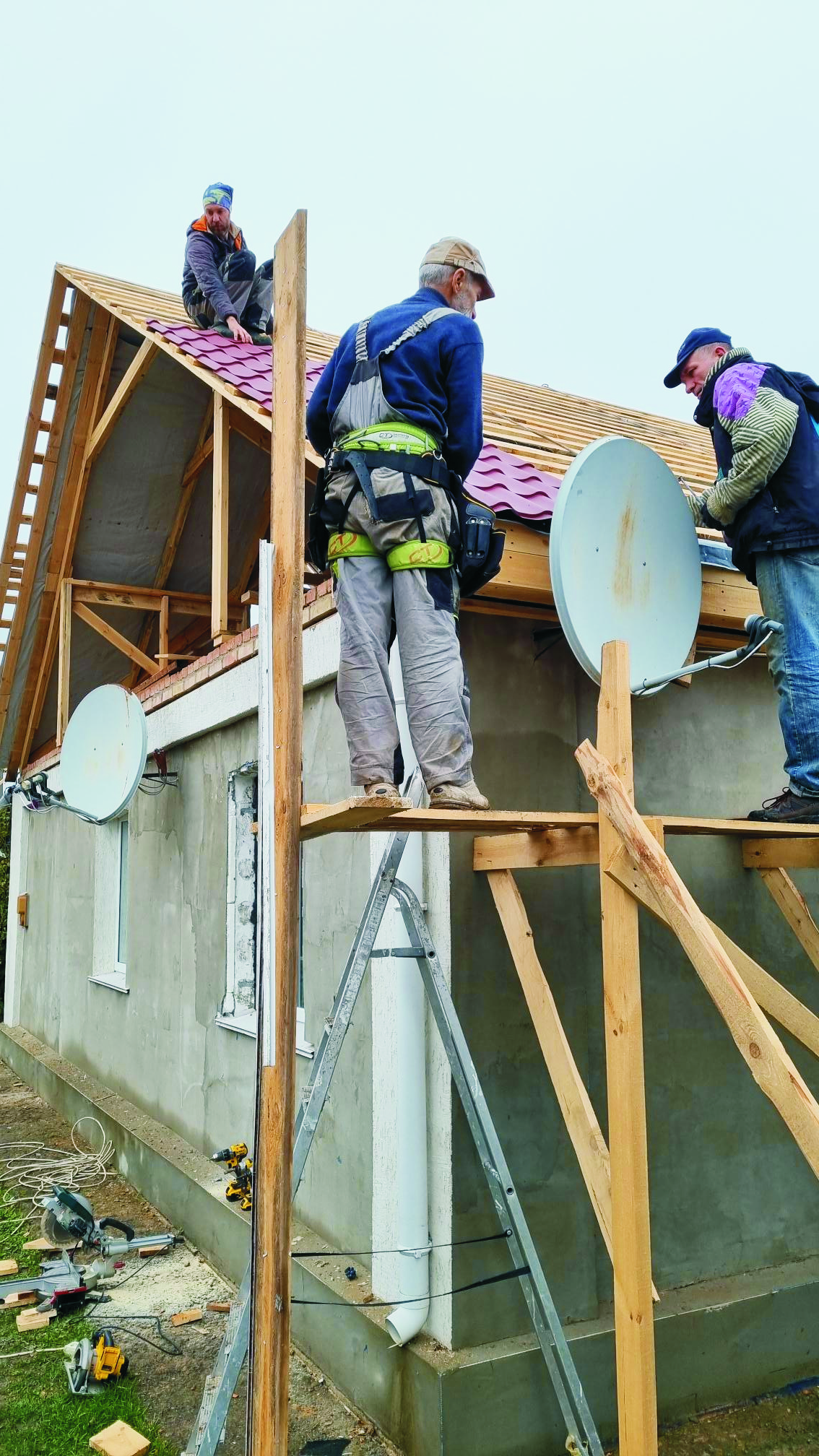
The Russian invasion of Ukraine caused unbelievable suffering and destruction. Public service facilities have been systematically targeted, resulting in widespread interruptions of electricity and water supply.
2022 Reconstruction of houses and water systems
Immediately after the start of the invasion, we were assessing how SKAT could contribute to the humanitarian response. Reconstruction of houses and water systems belong to SKAT’s core expertise. Furthermore, for over 14 years, SKAT had implemented the DESPRO programme, a governance and decentralisation initiative funded by the Swiss Agency for Development and Cooperation (SDC), which allowed us to count on long-term experience and well-established networks in Ukraine.
First activities were launched in May 2022 and continuously expanded. It covered the repair or upgrad of shelters for Internally Displaced People (IDP), water systems and damaged homes.For the repair of damaged houses, the households remained in charge of the works, while our programme was providing them with financial and technical support and guidance. This “Cash-for-Repair” approach was relatively light in logistics and easily upscaled.
Unlike many humanitarian actors, SKAT and its partners DESPRO NGO were used to closely collaborating with municipalities in Ukraine from our decades experience in decentralisation and local governance. This experience helped us work in close collaboration with municipal authorities, which enabled them to better respond to the crisis and again strengthens their local governance. REFAUK is therefore an excellent example of how SKAT and its partners can provide sustainable assistance throughout the Humanitarian Development Nexus.
2023 Eco-friendly reconstruction in Ukraine: Merely a bonus or the way forward?
While homeowners lack resources to rebuild their homes, the building materials from demolished houses are being dumped into landfills or illegal sites. If properly extracted, however, most building materials can either be reused or recycled. In 2023, together with local and international partners, SKAT conducted a study to identify, showcase and promote the most viable approaches to circular construction in Ukraine.
SKAT also supported the development and launch of a first pilot project. The programme’s local partner, Zero Waste Kharkiv, set up a central yard in a community where extracted materials are stored, upcycled and redistributed.
2024 and 2025 Exploring reuse of concrete for reconstruction in Ukraine
SKAT partnered with the Ukraine Waste Recycling Association and the Structural Xploration Laboratory of the Swiss Federal Institute of Technology in Lausanne (EPFL) to investigate reuse of concrete in Ukrainian reconstruction, with funding from the EPFL Tech4Dev programme. Building on SKAT’s combined experience in Ukraine addressing humanitarian repairs to buildings and infrastructure and our research on Circular Reconstruction in Ukraine we worked with local municipalities and demolition contractors to introduce techniques for reuse of concrete into official Ukrainian demolition and debris management procedures. In Ukraine, SKAT is also collaborating with SDC and HEKS in the development of a project supporting sustainable housing reconstruction that includes improved energy performance and principles of circular construction. This will pave the way for further initiatives.
Registration of SKAT Consulting Ukraine, LLC.
Our branch SKAT Ukraine LLC allows us to coordinate our ongoing efforts more effectively, respond to theneeds of our partners, and foster partnerships that support the reconstruction of Ukraine.


